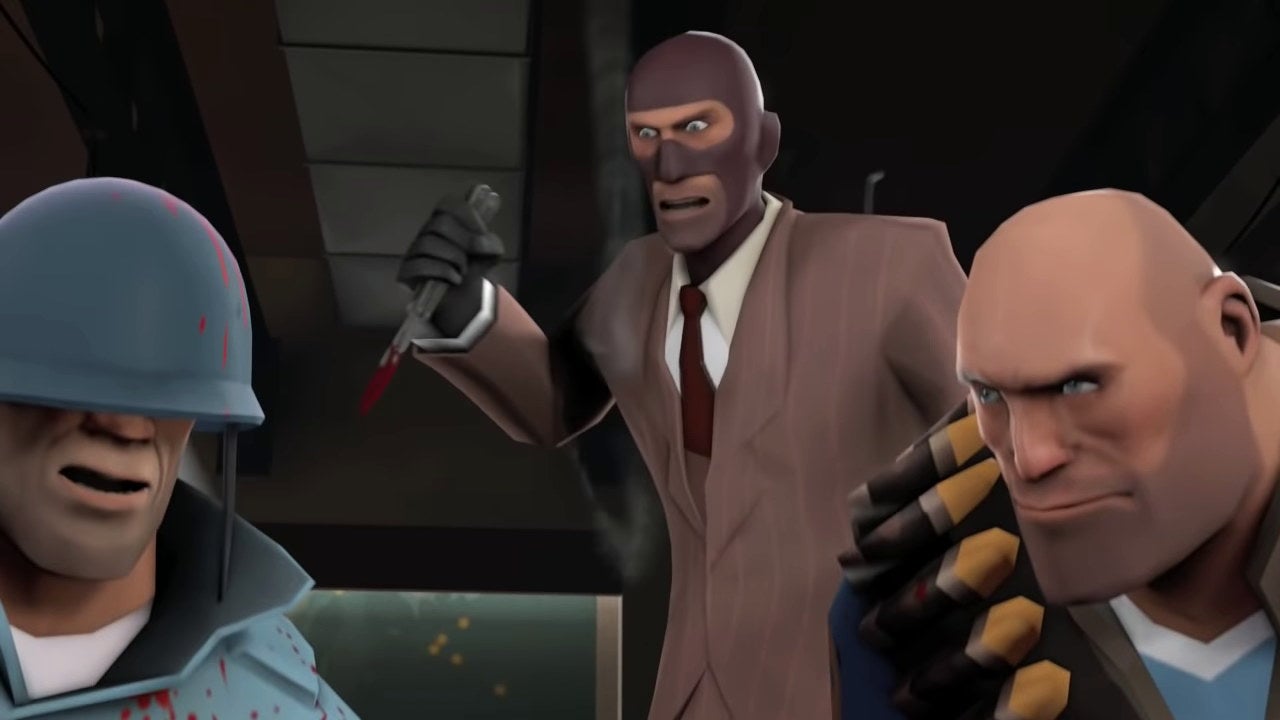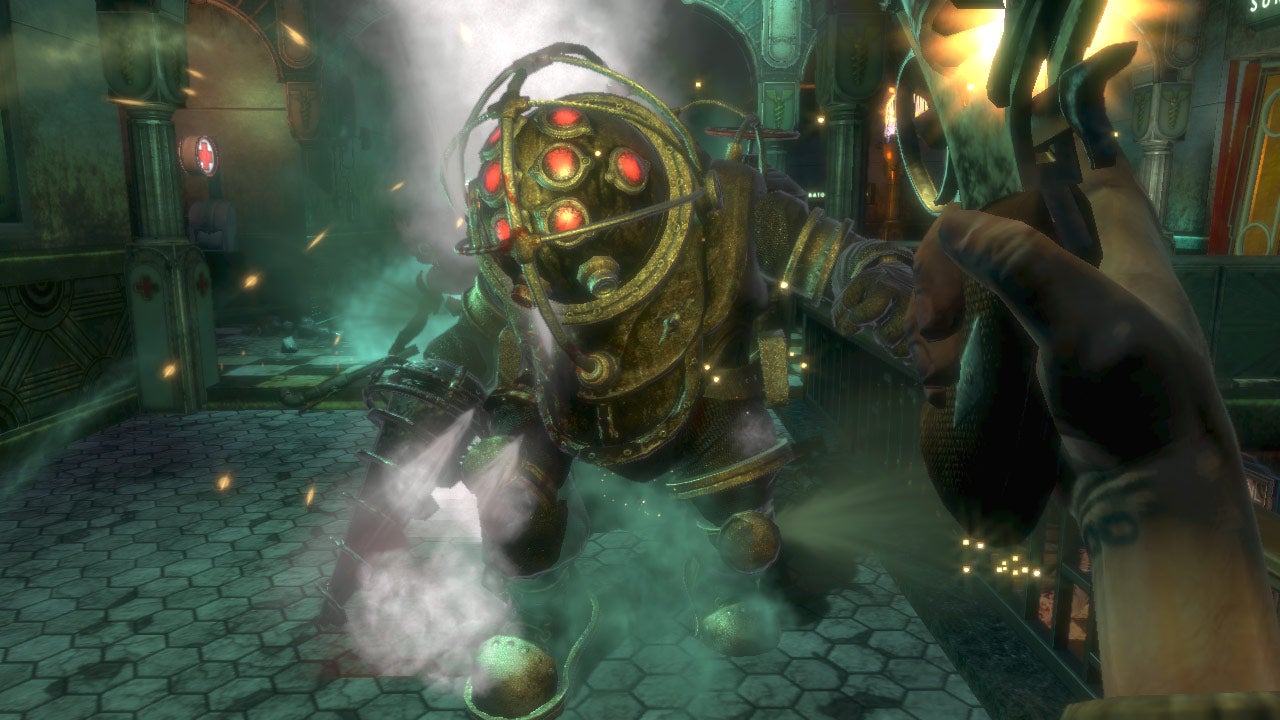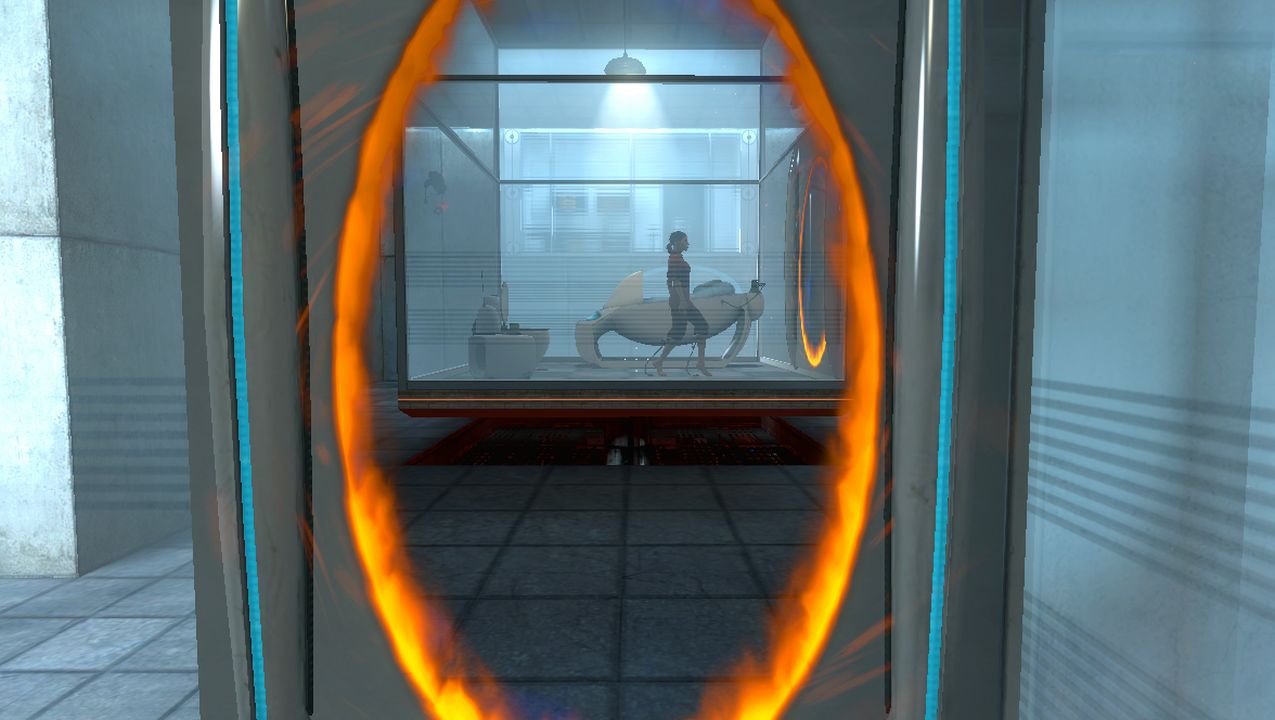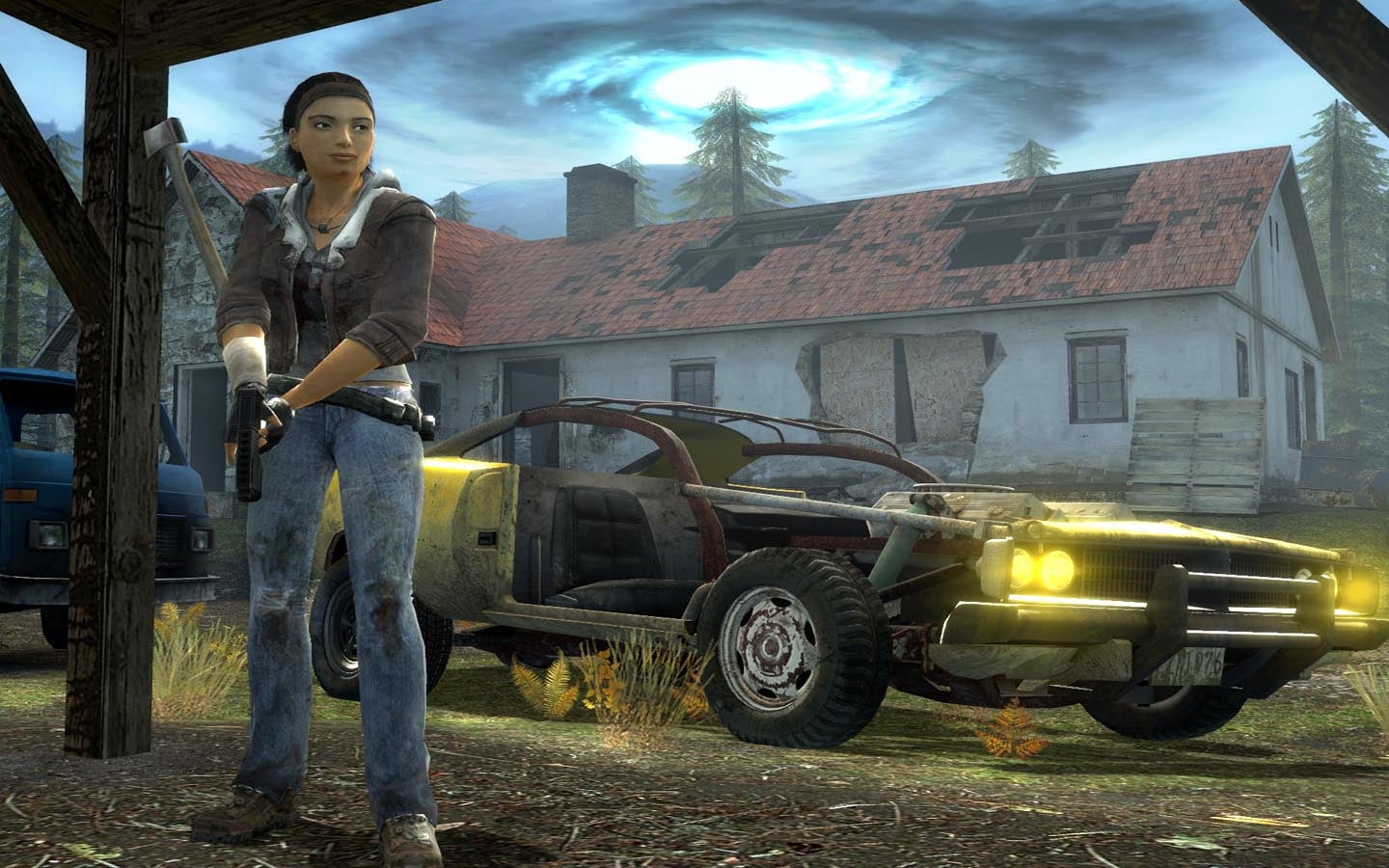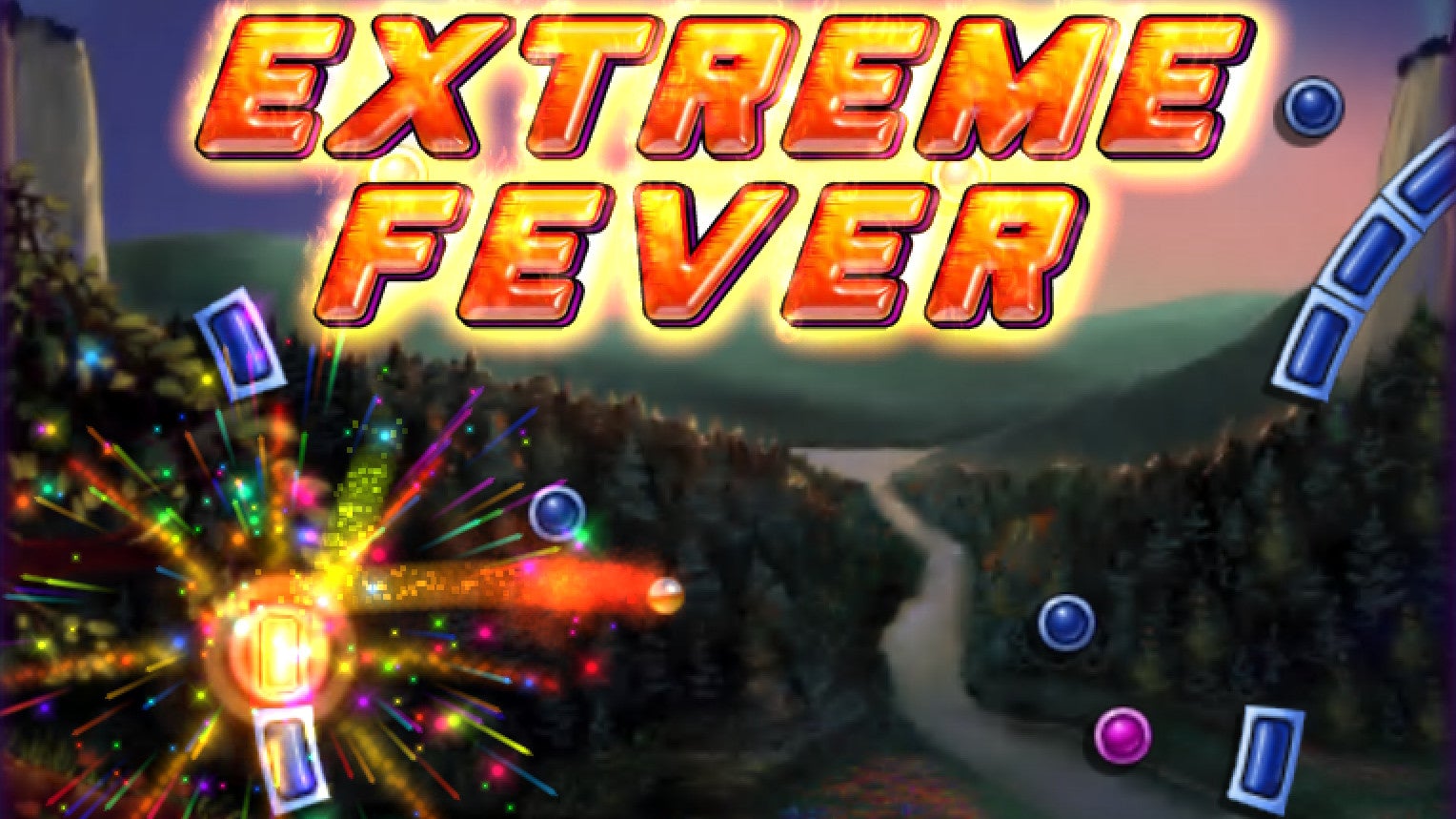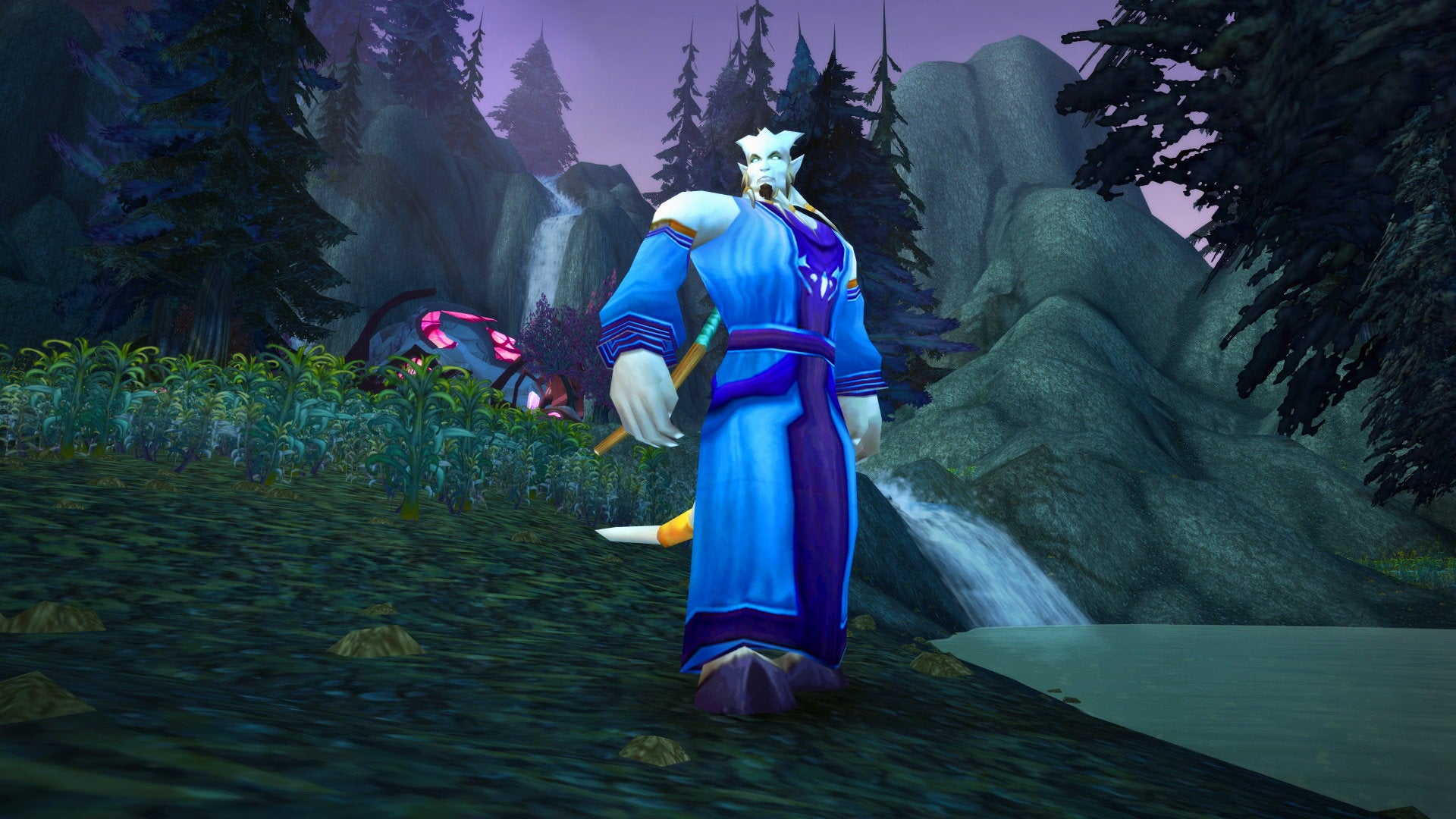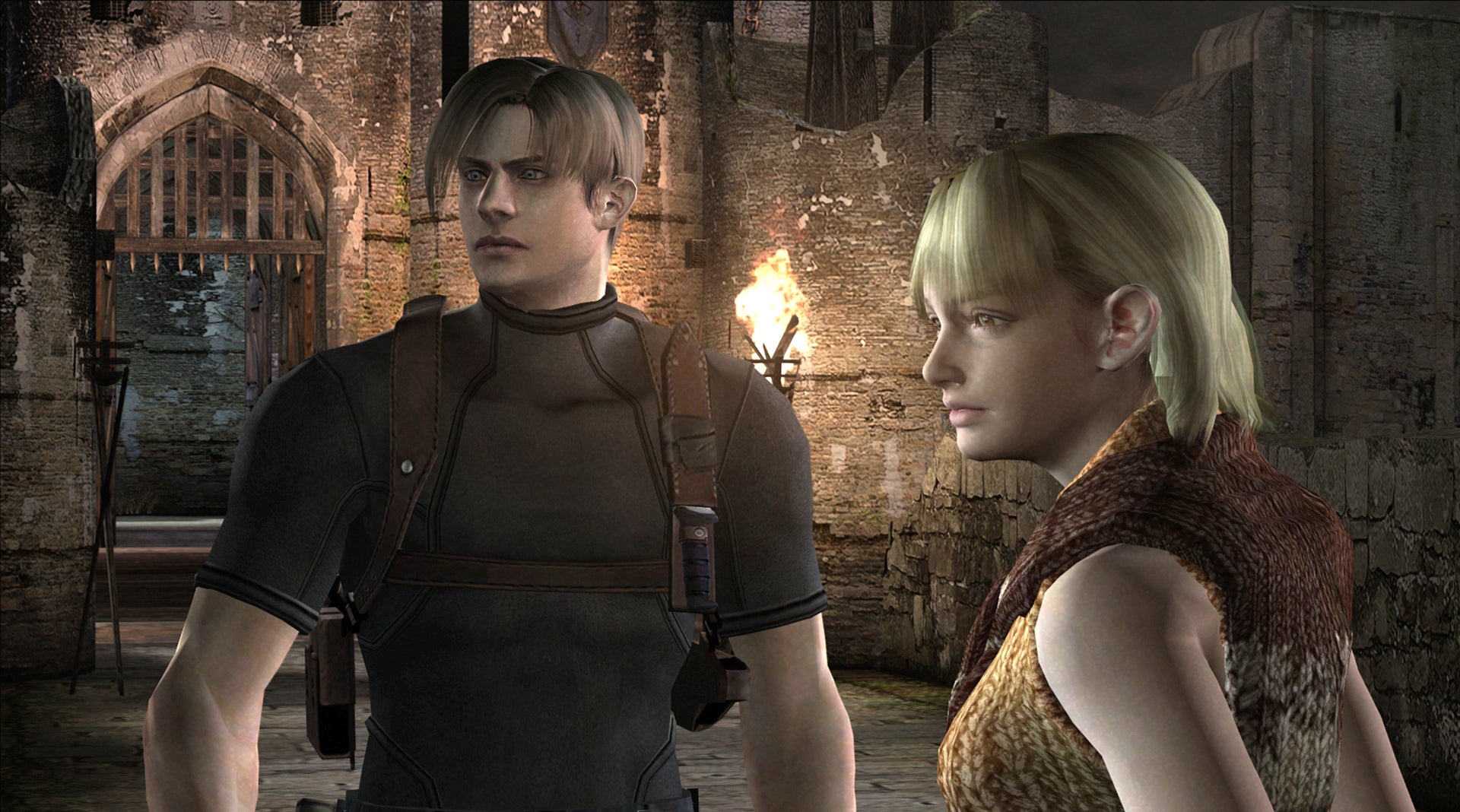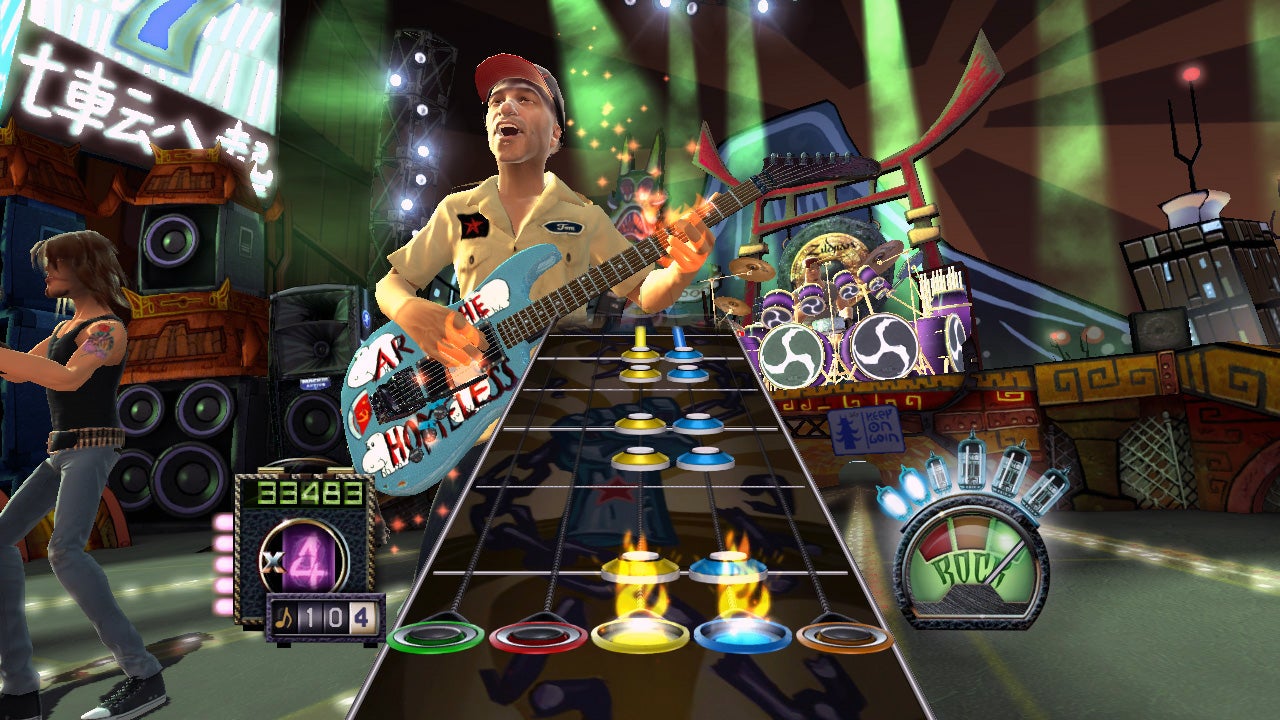You know the drill by now. These Time Capsules don’t exist to debate the definitive best games of the year. Instead, they’re the games we believe hold an important lesson for the future, whether that’s because they’re still the best example of their genre, or they did something special that future game developers ought to take note of. As a reminder of some of the other rules we’ve set ourselves in creating these Time Capsules: it’s the year of a game’s PC release we’re looking at here, not when they might have first come out on consoles. It’s also this specific version of the game we’re preserving as well, which is why some games with later remasters or remakes won’t necessarily appear in the capsule list of their original release year. Of course, there’s only so much space in our Time Capsule, with each member of the team nominating just one candidate to ascend to eternal fame and glory, so let us know in the comments if there are any games you think we’ve missed that should have deserved a spot. I apologise to those games in advance, though, because they will, unfortunately, be consigned to the bin of the eternal void as soon as I stop typing. Please accept my humble condolences.
Team Fortress 2
Liam: Considering it’s a shooter, I love how the most compelling bits of Team Fortress 2 don’t involve guns at all. Don’t get me wrong, there are plenty of brilliant firearms to play around with here. The heavy’s minigun, for instance, is an exercise in tension that leaves you extremely vulnerable as its barrel groans into life, gradually building into a devastating flurry of lead that cuts through everything in its path. The instantaneous crack of the Sniper’s rifle removes enemies with pixel perfect precision, bullet drop be damned. Even the shotgun, reserved as a secondary weapon for most classes, is pleasantly understated, more accurate than you’d expect and equipped with a reload sound that’s as comforting as a nice hot bath. They are, however, insignificant when compared to the Engineer’s mighty wrench. I spent countless hours squeezed in between a dispenser and a fully upgraded sentry, desperately repairing my metallic offspring as it rattled and chewed through hundreds of adversaries attempting capture the final control point. Pulling a trigger is easy. A great engie must instead consider things like geometry and lines of sight, and is happy to hunker down for literal hours for the sake of protecting a single floating briefcase. But it’s The Spy who stole my heart 15 years ago. Decades before Among Us, here was a class built entirely around the concept of social deduction, boasting combat mechanics that traded bullets for lies. My tactic was airtight: I’d helplessly shout for a medic’s aid to appear trustworthy, exploiting the kindness of strangers before sinking my butterfly knife into their freshly exposed back. There’s no feeling in the world like hearing the critical hit ding after tricking an enemy Sniper that you’re just a harmless Scout. It’s a high I’ve been chasing ever since.
BioShock
Rebecca: I’m really trying not to overstuff these Time Capsules with multiple entries from favourite franchises; but if ever there was a duology that deserves to be preserved entwined for all time like one of those Italian skeleton couples, it’s BioShock and BioShock 2. (Just don’t get me started on BioShock Infinite: my feelings are… complicated.) There’s reams of writing out there singing the praises of BioShock’s story and world-building, and you know what? I’m inclined to agree. BioShock was one of the games that got me back into gaming more widely, after several years of hibernating among my massive Sims collection while rarely trying anything new. My obsession with exploring every inch of this underwater city and uncovering the secrets of its inhabitants turned out to be my gateway into the immersive sim genre. Also, my fascination with this game is what led me to read Atlas Shrugged, but I don’t hold that against it. There was a remaster in 2016 and I can recommend that as well if you want to marvel at how pretty Rapture looks when the water outside no longer acts as a shield for restricted draw distance. But I highly recommend playing the original first, mainly because some environmental puzzles come pre-completed in the remaster, defanging some iconic scary moments in the process. Players on PC get both versions bundled together now anyway; don’t take those spooks away from yourself.
Portal
James: I like Portal because the experience of being locked inside a dangerous, windowless labyrinth gave me a great idea on how to punish Liam for snatching the TF2 entry. It’s also one of the best games ever made, a wildly successful experiment in first-person puzzling that’s dripping with character and inventive spirit. If Valve took a risk in giving it joint-top billing in The Orange Box, it was surely a calculated one. Take the puzzling itself. Portal’s inputs are simple - you can only move, jump, and shoot two portals at a time – but with cleverly designed test chambers and the steady introduction of mechanical twists, there’s always a fresh challenge to outthink. Between this well-judged complexity and a relatively high sense of kineticism, especially once inter-portal momentum comes into play, Portal’s puzzles don’t just bank on the pleasure of a single “Eureka” moment – they’re compelling from start to finish. It helps that Portal’s script is Valve at their most endearingly deadpan. Out-of-game references to duplicitous confectionary were excessive, it’s true, but don’t let that mask how rare it was to successfully pull off a comedy game in 2007. Hell, it’s 15 years later and hardly anyone has done it since. It doesn’t hurt to try, though – a huge part of Portal’s legacy is showing that experiments can pay off, and pay off big.
Supreme Commander
Ollie: Even after 15 years, no RTS comes close to providing the same dizzying sense of scale that the Supreme Commander series supplies with every match. Starting with just your Armored Command Unit mech, you’ll quickly progress to building giant factories that churn out huge armies of tanks, mechs, and jet planes in mere minutes. It’s not uncommon to zoom your camera all the way out to view the whole map, and see hundreds upon hundreds of units swarming about and engaging in fierce skirmishes on the outskirts of bases. Every shot fired by even the smallest, lowliest unit is fully simulated, so there are no dice rolls to determine whether a shot hits or not. It’s all just physics. The best part was when you progressed to the experimental super-weapons at the end of the tech tree. It was a colossal undertaking, building even one of your nation’s experimental units, but it was so worth it to see a gigantic spider mech stomping over the enemy’s tanks, or a screen-filling mothership let loose its Independence Day laser beam to splinter the opponent’s strongest defences in seconds. Glorious stuff.
Half-Life 2: Episode 2
Katharine: My abiding memory of Half-Life 2: Episode 2 is squashing lots and lots of antlion grubs inside the twisty-turny tunnels of a bioluminescent cave. Probably because I was cross I didn’t squash them all by the time I reached the end of it, therefore missing the achievement for doing so. In hindsight, it’s kinda mad that this is what’s stuck in my memory, as Episode 2 is jam-packed with incredible setpieces that only build and improve upon the exceptional craftsmanship we’d seen three years earlier. Alyx almost dies right at the start, for heaven’s sake, Striders are stalking you at practically every turn, and there’s even a proto Metro 2033 sequence where you’re gunning down hordes of actual antlions (not grubs) underground. And oh lord, the Hunters. Just the actual worst. It’s certainly a series high point, for sure, but I’d argue the real reason Episode 2 deserves to be Time Capsuled along with the 2004 original is because of that cliffhanger ending, mostly so future generations will know and appreciate the sheer agony we all endured in the years that followed. It would take Valve another 13 years to revisit the Half-Life universe with VR entry Alyx, but even then it would only offer a tantalising glimpse at what could still be in Gordon Freeman’s future, rather than anything concrete. I’m not interested in reigniting the ‘why no Episode / Half-Life 3?’ debate. That doesn’t interest me in the slightest. But it’s a moment that should be remembered nonetheless - a lesson in the kind of rampant mythologising and runaway fan theories that can occur when a series goes dark for a bit. If nothing else, it should act as a warning to future game devs. Please. For the love of all that’s holy. Don’t leave us on this kind of cliffhanger ever again. Our fragile minds can’t take it.
Peggle
Alice0: I was torn between Peggle and S.T.A.L.K.E.R.: Shadow Of Chernobyl for 2007, two games about as opposite as can be. But Call Of Pripyat is arguably/contentiously the better S.T.A.L.K.E.R. game (in ways?) so let’s set the grim exploration aside and focus on joy - and Ode To Joy. Peggle is just really nice. Pachinko meets pinball meets bagatelle, all wrapped up in colours and rainbows and fantasy friends. I reinstalled Peggle today (look, this is a new PC, okay) simply to take a screenshot for this post and before I knew it, I was popping pegs like the good old days. Peggle now is as good as Peggle was then, especially as this sort of friendly casual game mostly exists today as free-to-play games crammed full of gems and loot boxes and microtransactions and ads, or it would be a roguelikelike, or… I miss this sort of game. I cherish the few which exist. Peggle still exists. You can still play Peggle. You should still play Peggle. It runs on any PC still able to turn on, and the game up only takes one (1) Peggle of drive space.
World Of Warcraft: The Burning Crusade
Alice Bee: 2007 is a remarkable yet annoying year to pluck a game from, especially if you’ve been on holiday for a week and your peers have already picked the most obvious ones that you would have gone for. But undefeated MMORPG WoW’s first expansion is an obvious one, when you think about it. The Burning Crusade saw the return of the Burning Legion, a huge army of demons that is very much the Tubthumping by Chumbawamba of the Warcraft universe. The Legion’s most recent appearance prior to The Burning Crusade was in 2002’s Warcraft III, which was my original and most cherished Warcraft game, and The Burning Crusade was the first time I dipped a toe into the World Of Warcraft (I removed the toe very quickly because I was not very good and found it overwhelming, but still, there was some synergy). The Burning Crusade was almost universally loved, though. It had a well cool trailer, added big, lush fantastical scenery, and introduced the Draenei (sort of buff blue squid-goats, see above) and Blood Elf (big eyebrow pinup elf: orange flavour) starting races – along with the first raise to the level cap and new raids to boot. It’s arguably when World Of Warcraft began to really be World Of Warcraft. And when I say universally loved, I’m talking about a big universe: it was the biggest-selling PC game of 2007. In fact, it was the fastest-selling PC game in history up to that point. It deserves a save.
Thrillville: Off the Rails
Hayden: ThrillVille: Off the Rails was Frontier’s midlife crisis between Rollercoaster Tycoon 3 and Planet Coaster. As a theme park management game, it isn’t great. You run around and chat with guests to see what they like, plop down a few rides, and chat with them again to improve your thrill meter. Yawn. Just play Planet Coaster, it’s way better. ThrillVille: Off the Rails is best when it goes… well, off the rails. Load it up and you’re greeted by a bunch of rollercoaster-themed love songs that flip between classic rock and early naughties pop. Think Angus, Thongs and Perfect Snogging, but with rollercoasters. We need to time capsule it for easy access to the soundtrack alone. There are also a bunch of minigames that you can play around your park. One of them is basically Hill Climb Racing, a mobile game about balancing the physics of a vehicle as it bounces across hills, and it’s very fun. Another is a rhythm game that makes you press buttons in time with absolute bangers from the soundtrack. The minigames are ridiculous and I love them. I have no more words. Just listen to the song above. ThrillVille: Off the Rails is terrific, terrible, and absolutely worth preserving.
Stranglehold
Ed: John Woo’s Stranglehold is a third-person shooter and sequel to Woo’s ultra-violent film Hardboiled, in which you control Inspector “Tequila” Yuen and dive into the seedy underbelly of Hong Kong. Seriously, you really do dive into things, sometimes on your belly, sometimes on your back. Either way, you’ll whip out two silver pistols and channel Max Payne, riddling baddies with bullets in the most cinematic way possible. We must save Stranglehold because it lets you run along a railing and light-up enemies in slow-mo, then dive onto a food cart and continue the process as chunks of melon sling across screen. You’re rewarded with points for your ‘investigative’ flair and the occasional Sniper Elite sequence where you steer a bullet into someone’s chestnuts. In a year of greats, Stranglehold must remain wedged between them all as this homage to cinematic silliness. And hey, if you ever rinsed the legendary 20-minute Xbox 360 demo back in the day, here’s to you - a real one.
Resident Evil 4
CJ: Resident Evil 4 is god-tier for me, even though I hold the original trilogy and Code Veronica dear too. It chucks away the dread of the earlier games, instead embracing visceral panic, which changes things up so much. It’s pretty well known now that Resi 4 adapts to how good you are, to either smooth over the challenge or ramp things up. Thanks to the fairly steady pacing of enemy types, I’d say you never feel like you’re having an easy time whatever your skill level. At least not until you complete the game – then there’s Mercenaries to tackle afterwards. That was probably the most hectic thing I’d ever played back then, excepting Jeff Minter stuff such as Llamatron when I was about seven. The action is sheer class, but Resi 4 is surprisingly well acted to boot. Paul Mercier manages to lend the necessary amount of swagger to Leon ‘The S is for Survival Horror’ Kennedy, selling the campy mood in a way the original three games just couldn’t. Mercier nails it with his work for the Merchant too – a character even people who’ve never played a Resident Evil game are aware of thanks to his astonishing quotability. So, yeah, almost a perfect game. I don’t think I’m the only person who finished their first playthrough and immediately started another, desperate to recapture the initial thrill. Not going to lie: my anticipation for the Resident Evil 4 remake is so low that it recently won a limbo competition. I’m not sure there’s anything to change about the original, but I’d welcome any surprises. “Your left hand comes off,” maybe?
Guitar Hero 3: Legends of Rock
Rachel: Every single day I pray to the rock gods to bless the PC with a Guitar Hero 3 HD remake. It was the first rhythm game I properly got into (like, ‘staying up into the early hours of the morning’ got into) and introduced my young brain to so many incredible rock bands. Harmonix truly are the kings of revolutionary music games, and Guitar Hero was arguably their greatest creation. After the first two games, Activision spent an eye-watering $100 million (big money back in 2007) to acquire the franchise, and later that year the clouds parted, and Guitar Hero 3 was lowered from the heavens to the sounds of epic guitar wailing. Fourteen was around the age where I started developing some resemblance of a taste in music and Guitar Hero 3 singlehandedly hotwired my brain to love the thrashing guitars of rock. GH3’s playlist is 100% the best one of the entire series with iconic songs from Black Sabbath, Sonic Youth, Rolling Stones, Nirvana, Guns N’ Roses, Smashing Pumpkins, Led Zeppelin - the bangers just kept coming. I remember playing Barracuda by Heart over and over again because Ann Wilson was a badass front babe (and the only female singer on the core GH3 playlist) and almost breaking my fingers trying to play Dragon Forces’ Through the Fire and Flames on expert. The PlayStation, Xbox, and PC releases each got their own unique guitar controllers, but the PC got the best one, hands-down. Soz, I don’t make the rules. The games later moved away from its rock origins, but Guitar Hero 3 remains the pinnacle of the series, so I’ve decided, for the good of rock, to encase it in our Time Capsule.
